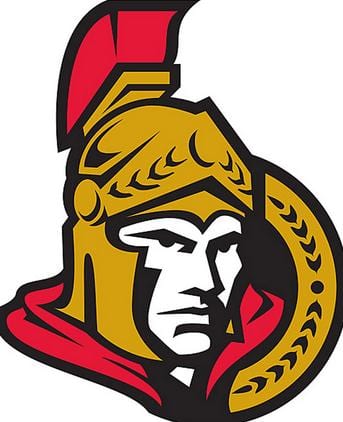You Can Play co-founder Brian Kitts says two instances of homophobia among fans at an April 20 Ottawa Senators/Toronto Maple Leafs game are “detrimental to the sport.”
Ottawa Senators fan Emily Bradley, 29, left the game at Scotiabank Place during the second period after Maple Leafs fans called her a “disgusting dyke,” she says.
Bradley, who was often targeted by bullies in high school for her masculine appearance, says the comment hit especially hard.
“In high school, even though I only dated guys, people still called me a dude. I was always a tomboy. Who goes to a game wearing makeup and all done up in heels?” she asks. “Most people go wearing a jersey.”
The Senators fan says she has had Leafs supporters spit in her face before but never experienced homophobia.
Elsewhere in the arena, a Leafs fan was allegedly kicked out for calling another fan a “faggot,” according to social media.
Brian Morris, director of communications for the Ottawa Senators and Scotiabank Place, confirms that security staff ejected a man from the game for being verbally abusive.
However, Morris would not confirm the homophobic language and would say only that “our policy at Scotiabank Place is that we have zero tolerance for verbal abuse in any form between patrons.”
Pat Park, director of communications for the Toronto Maple Leafs, did not respond to a request for comment.
Kitts says homophobia, both within the fan community and in the locker room, is difficult to change, but it is a battle that must be fought.
“Things like this — these examples where they are a little more overt and you are actually targeting someone — that crosses into bullying as opposed to the casual homophobia,” Kitts says. “Frankly, there is not a place for either one of them. It’s detrimental to the sport; it’s detrimental to the culture of sports. It hurts us as human beings to degrade someone like that.”
In 2012, former Toronto Maple Leafs general manager Brian Burke teamed up with his son Patrick to challenge homophobia in sports. Their You Can Play campaign pays tribute to Brian’s younger son, Brendan, who died in a car crash in 2010, just months after he publicly came out.
The National Hockey League (NHL) and the National Hockey League Players’ Association announced a partnership with the You Can Play campaign in April.
“The way it will do the league good is it will create the right environment for the league and our fans,” NHL commissioner Gary Bettman told the National Post.
Kitts says hockey fans need to be encouraged to object when they witness homophobia.
“Fans have an opportunity to stand up when they hear these types of slurs,” Kitts says, “and you don’t need to be violent about it. You can get guest relations staff if you are at a venue.”
“Until we start sticking up for each other as human beings and as sports fans, things don’t change,” he says. “Being silent isn’t helpful. I would encourage fans to correct the language of anybody who is calling somebody a faggot or a dyke. It’s as simple as choosing another word.”
Kitts also encourages gay players and fans to be more open to questions and slower to judge potential allies.
“This is where the LGBT community has to be fairly aggressive about saying, ‘Ask me questions,’” he says. “The LGBT community cannot be offended when questions are asked; they have to be supportive of the education process that goes into it when they are talking to straight allies.”
NHL teams are aware of the importance of having diverse audiences, and You Can Play and the NHL plan to launch “substantial fan outreach” next season, Kitts says.
As for Bradley, she says she will still attend Senators games and is rooting for her team as they take on the Montreal Canadiens in the first round of the Stanley Cup playoffs.
“I always liked the idea of You Can Play,” Bradley says. “I guess I didn’t realize what they were up against until it was directed towards me.”


 Why you can trust Xtra
Why you can trust Xtra


